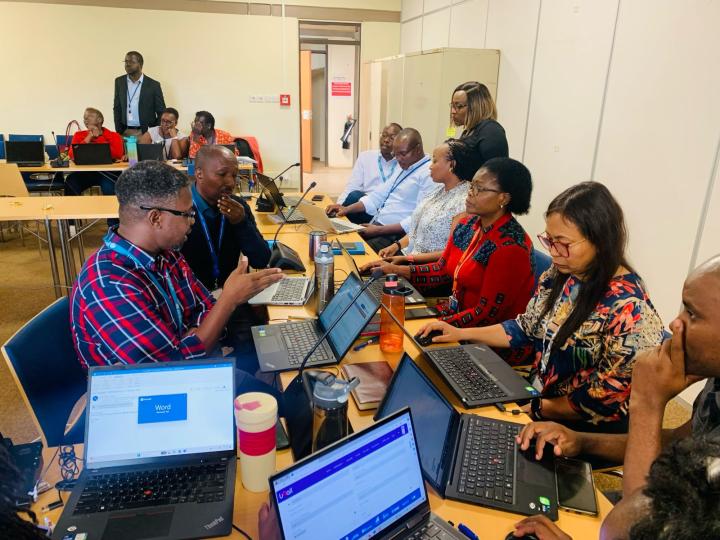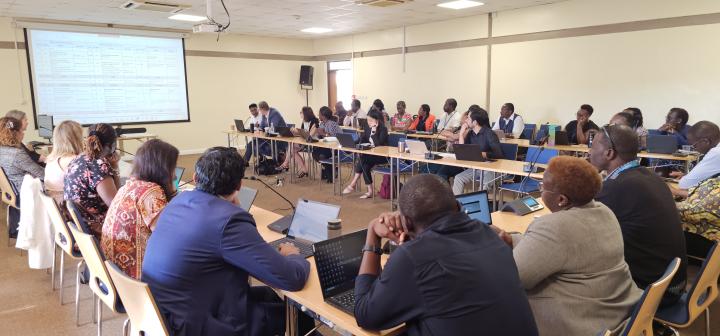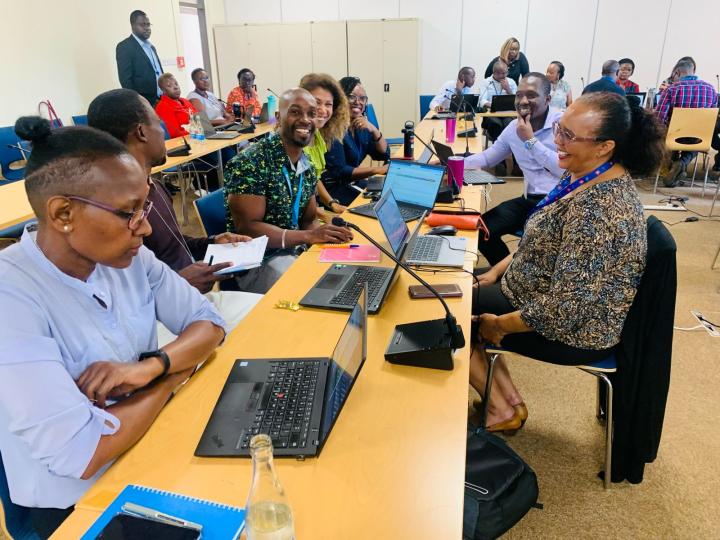UN entities in Kenya convened for a three-day training workshop from February 13th to 15th 2024.
UN in Kenya Advances Business Operation Strategy 2.0 for Enhanced Efficiency
February 26, 2024

Human Resource Working Group members. Photo by Lynne Karago

ICTS Working Group members. Photo by Godfrey Kiragu
What is BOS 2.0 and BOS annual review?
BOS 2.0 serves as a UN-wide framework promoting joint business operations. It encourages entities to collaborate, eliminate duplication, and leverage their combined bargaining power to achieve economies of scale.
The BOS annual review to be completed by all UN Country Teams across 132 countries by 31 March 2024, examines 2023 data and projects future collaboration to ensure cost avoidance and quality improvement of the common services. This aligns with the Sustainable Development Goals (SDGs) and facilitates projects/programmes implementation in Kenya. The Common Back Office (CBO) implementation in Kenya this year is expected to be moved, implemented, and reported under the CBO.
A week of collaboration
During the workshop, participants delved into various aspects of BOS 2.0. Mr. Saman Mastiyage Don, the Development Coordination Office (DCO) Africa focal point, with the support of the CSMT Chair, Mr. Lars Tushuizen and UNDP Deputy Representative for Operations, the CBO Coordination Unit, and UNON BOS practitioners, provided valuable input and support to the Common Services Working Groups (WGs). The sessions included:
Global reform overview: Participants received a comprehensive update on ongoing UN system reforms impacting BOS 2.0.
Hands-on sessions: Days 2 and 3 of the workshop helped Working Groups update their BOS data input in the new system, strengthening their capacity in areas such as the opportunity analysis including the Cost Benefits Analysis (CBA) as Non-CBA and CBA services (Simplified, LTA or Detailed) and reporting. These cover cost-based CBA (One time cost, recurring cost, and labour cost), and quality-based CBA (including services without CBA).
Reform and efficiencies: Exploring ways to optimize operations and achieve cost savings.
BOS governance: Understanding reporting timelines and accountability frameworks.
High impact common services: Identifying opportunities for collaboration that contribute to the SDGs.
Cost-benefit analysis: Evaluating potential joint services for maximum impact.
Planning framework: Building a roadmap for implementing and monitoring common services.

CSMT and Working Group members. Photo by: Lynne Karago
The workshop marked a significant step forward in implementing BOS 2.0 in Kenya. With a clearer understanding of the framework and enhanced capacity within Working Groups, the UN in Kenya is well-positioned to finalize the BOS annual review, continue to streamline operations, improve efficiency, and ultimately deliver greater impact towards achieving the SDGs.

 Locations
Locations